Mosquito Repellent Plants (and How to Use Them)
This post may contain affiliate links. Read my full disclosure here.
We live right next to marshy area, so mosquitoes are an inevitable part of summer outdoors. Thankfully, many of our favorite herbs and flowers also act as mosquito repellent plants. I tuck them in all over the garden and greenhouse, so we always have plenty to use.
While chemical repellents are effective, I don’t like the load of toxins that come with them. We were told that DDT was safe, too – until they realized it wasn’t. A recent study suggests that DEET may impact meiosis, a type of cell division that creates eggs and sperm. In humans, this may be linked to miscarriage, stillbirth, infertility, and genetic conditions.
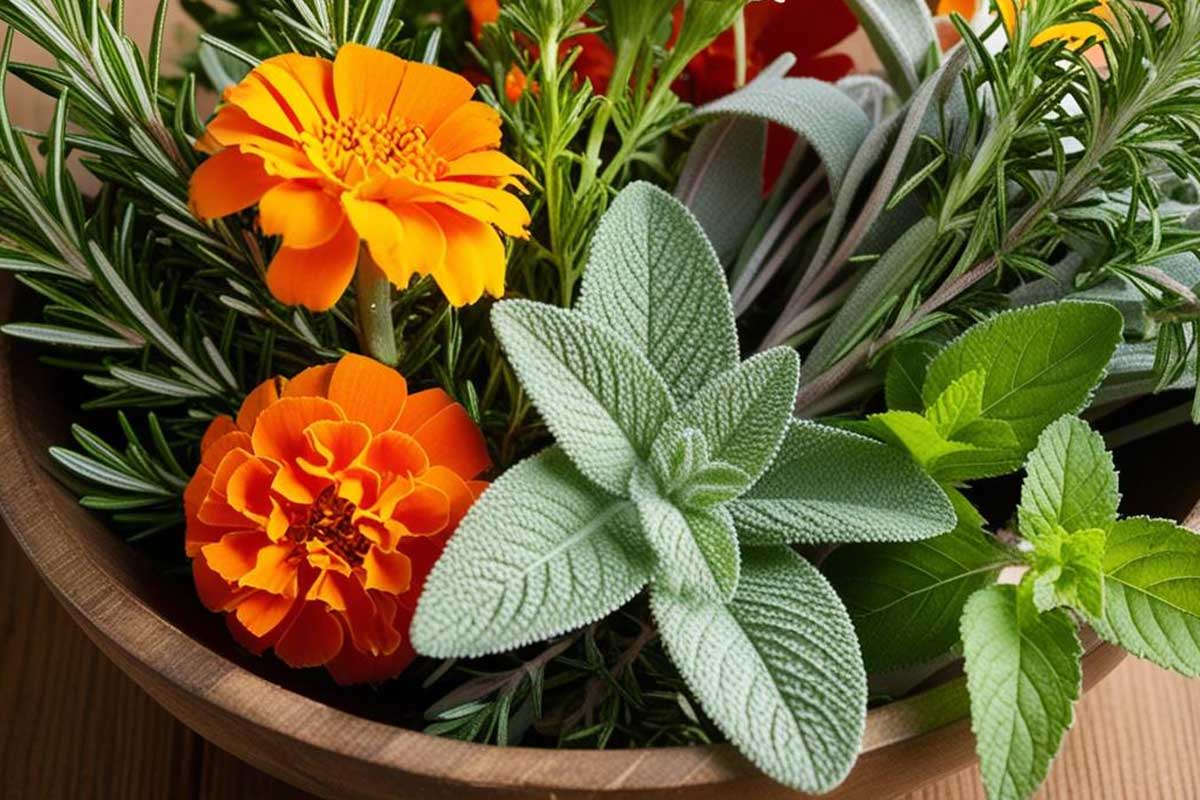
Table of contents
- Mosquito Repellent Plants Get the Job Done
- 1. Citronella (Cymbopogon nardus & Cymbopogon winterianus)
- 2. Lavender (Lavandula spp.)
- 3. Marigolds (Tagetes spp.)
- 4. Basil (Ocimum basilicum)
- 5. Lemon Balm (Melissa officinalis)
- 6. Peppermint (Mentha piperita)
- 7. Rosemary (Rosmarinus officinalis)
- 8. Catnip (Nepeta cataria)
- 9. Lemongrass (Cymbopogon citratus)
- 10. Geraniums (Pelargonium spp.)
- 11. Sage (Salvia officinalis)
- 12. Tansy (Tanacetum vulgare)
- 6 Ways to Use Plants for Mosquito Control
Mosquito Repellent Plants Get the Job Done
Mosquitoes can still transmit diseases (and make you miserable), so we still need protection. Many plants contain compounds that help deter mosquitoes, making them excellent additions to gardens, patios, and outdoor spaces. Below are some of the most effective mosquito-repellent plants, plus tips on how to use them to beat mosquitoes.
1. Citronella (Cymbopogon nardus & Cymbopogon winterianus)
Commonly known as the “mosquito plant,” citronella grass is well-known for its strong citrus scent. This scent masks attractants that draw mosquitoes. It thrives in warm climates and requires well-drained soil and full sun.
While crushed citronella leaves can provide temporary relief, planting it around outdoor seating areas offers continuous repellent benefits. You can also use citronella candles.
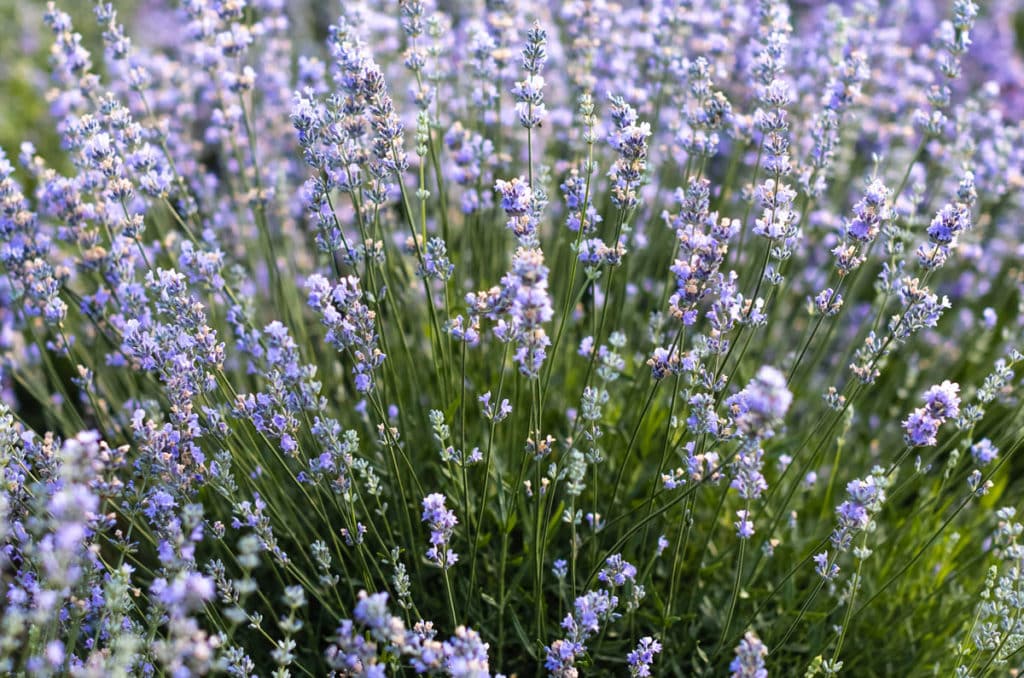
2. Lavender (Lavandula spp.)
Lavender’s soothing aroma is pleasant for humans but repels mosquitoes. The plant contains compounds like linalool and camphor, which disrupt mosquito sensory receptors. Lavender grows best in well-draining soil and full sun, making it a hardy, drought-resistant choice for gardens and pots.
Learn more about growing and using lavender.
3. Marigolds (Tagetes spp.)
Marigolds contain pyrethrum, a natural insecticide found in many commercial mosquito sprays. Their bright flowers also deter aphids and other pests, making them a useful companion plant. I love their spicy aroma!
These hardy annuals thrive in full sun and well-draining soil. This makes them an easy and effective border plant for vegetable gardens and outdoor seating areas.
4. Basil (Ocimum basilicum)
Basil not only enhances culinary dishes but also repels mosquitoes with its aromatic oils, including estragole and eugenol. The plant prefers moist, well-drained soil and full sun. Keeping a potted basil plant near entryways and outdoor dining spaces can help reduce mosquito presence.
5. Lemon Balm (Melissa officinalis)
Lemon balm emits a strong lemony scent that masks mosquito attractants. It grows well in partial shade or full sun and prefers moist, well-drained soil. As a vigorous grower, it may become invasive, so planting it in containers helps control its spread.
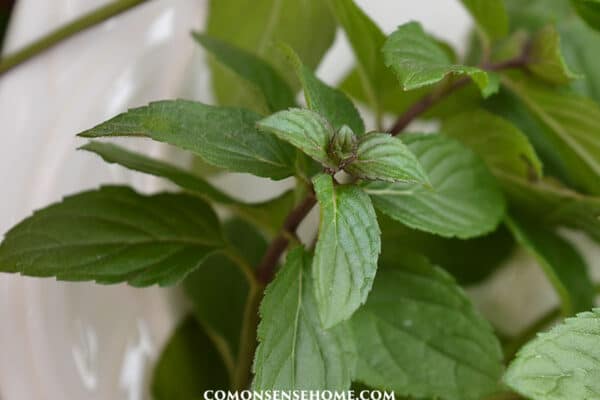
6. Peppermint (Mentha piperita)
Peppermint’s intense menthol aroma deters mosquitoes and other pests like ants and spiders. It thrives in moist soil and partial shade to full sun. Since mint spreads aggressively, growing it in containers is recommended to prevent it from overtaking garden beds.
Learn more about growing mint.
7. Rosemary (Rosmarinus officinalis)
Rosemary’s woody scent is known to repel mosquitoes and other insects. This drought-resistant herb prefers full sun and well-draining soil. It grows well in garden beds and containers, making it a versatile choice for repelling pests and seasoning meals.
Would you like to save this?
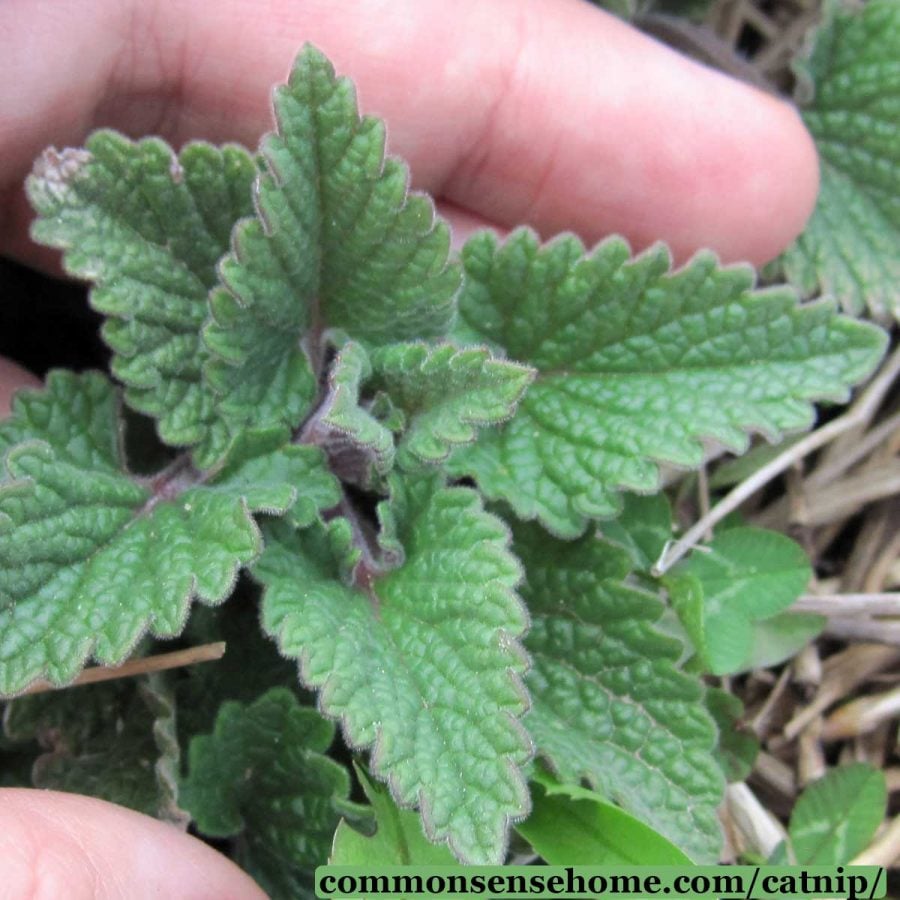
8. Catnip (Nepeta cataria)
Catnip contains nepetalactone, which has been found to be more effective than DEET in repelling mosquitoes. It grows easily in most soils and thrives in full sun to partial shade. While great for deterring mosquitoes, it may attract neighborhood cats.
Learn more about using catnip.
9. Lemongrass (Cymbopogon citratus)
Closely related to citronella, lemongrass contains citronellal, a compound known to repel mosquitoes. This tropical plant thrives in warm temperatures, full sun, and well-drained soil. It grows in clumps and can be used as a natural screen around patios.
10. Geraniums (Pelargonium spp.)
Certain scented geraniums, especially those with a lemon fragrance, are effective at repelling mosquitoes. These plants prefer warm, sunny locations with well-draining soil. Their strong scent makes them a useful addition to container gardens and flower beds.
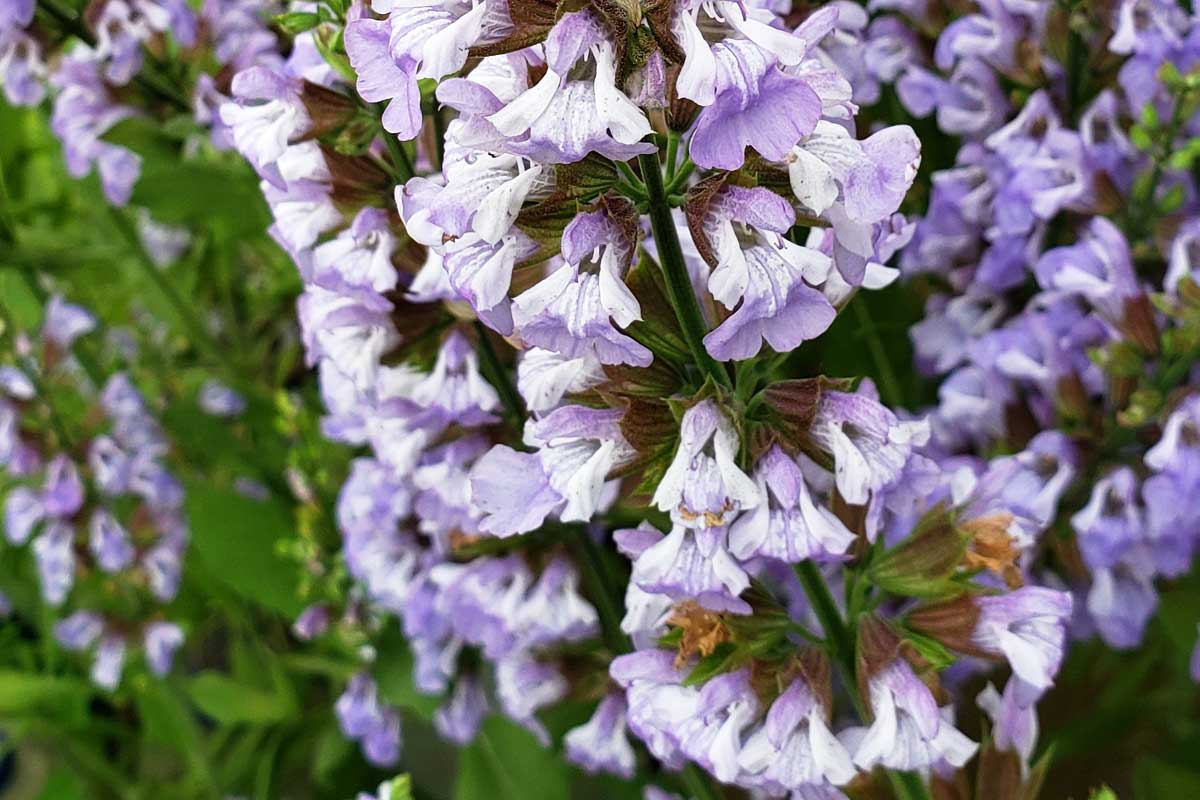
11. Sage (Salvia officinalis)
Sage is not only a culinary herb but also an effective mosquito repellent. When burned, its smoke can help keep mosquitoes at bay. Sage thrives in well-drained soil and full sun, making it a great addition to herb gardens. Placing sage plants near patios or fire pits enhances its repelling properties when used in outdoor gatherings.
Learn more about growing sage and it’s benefits.
12. Tansy (Tanacetum vulgare)
Tansy is a hardy perennial with bright yellow flowers and strong insect-repelling properties. It contains compounds like thujone that deter mosquitoes and other pests. Tansy thrives in well-drained soil and full sun but should be planted with caution, as it can become invasive. It works well as a natural border plant to keep mosquitoes away from outdoor spaces.
Learn more about growing and using tansy.
By incorporating these mosquito-repelling plants, you deter pests while adding beauty of your outdoor space. Consider planting a combination of these varieties for a more effective, eco-friendly mosquito control strategy.
6 Ways to Use Plants for Mosquito Control
- Plant herbs in your garden anywhere and everywhere you can squeeze them in, the more the better.
- Make mosquito planter pots. Protect the high use areas of your yard with planter pots. Create container plantings to place by the entry doors, by your grill, by the pool and on the deck. Encourage friends and family to brush against the plants.
- Potpourri. Dry the herbs and place in little bowls all over outside where you hang out. Randomly run your fingers through the dried herbs to release the scent when you walk by.
- In the dryer. Put a few drops of essential oils from mosquito repellent plants on an old cotton cloth and throw in the dryer with your clothes. It will give your clothes a natural insect repellent without putting anything on your skin
- When camping – add a small bundle of herbs to your campfire to create an herbal smoke.
- Make a Natural Mosquito Repellent (Get natural mosquito repellent recipes here.)
Need more options? Check out “How to Get Rid of Mosquitoes“.
Fresh Herbs Keep Mosquitoes Away
My friend, Amber, shared this story:
Once I participated in an herb sale at a local nursery. Several of the volunteers and customers were complaining all day of the biting insects and how bad they were. I realized I wasn’t getting bit (which is HIGHLY unheard of for me).
Working with herbs all day – rubbing them, tasting them, crushing their leaves, and brushing my hand over the top – protected me from bites.
Some of the compounds in mosquito repellent plants are volatile. They react with air and will evaporate. It’s important to note that natural mosquito repellents should be reapplied throughout the day for best results. You may also be able to minimize factors that attract mosquitoes.
When working with fresh plants, think about the herb sale – lots of contact, herbs used inside and outside. Enjoy that spicy food! If you are too late to block bites, we also have home remedies to stop the itch.

This article is written by Laurie Neverman. Laurie and her family have 35 acres in northeast Wisconsin where they grow dozens of varieties of fruiting trees, shrubs, brambles, and vines, along with an extensive annual garden. Along with her passion for growing nutrient dense food, she also enjoys ancient history, adorable ducks, and lifelong learning.

